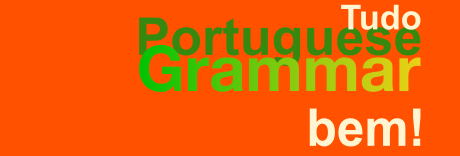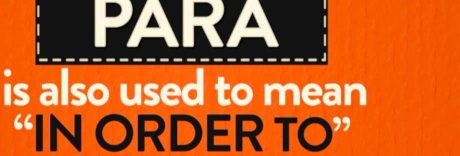
Chegou a hora – in Portuguese means of course: the time has arrived, the time has come, or simply, it’s time. Seems so simple, right. But how would you say something like: “when the time comes to…” or, “please, be on time –? Simple Use: Chegou a hora de trabalhar. ➜ It’s time to work….
Read more...

When you want to say, it’s time to or, the time has come to… Use chegou a hora. Literally, the hour arrived. It’s always followed by “de”. Like this:

present indicativechegar to arriveeuchegovocê, ele, elacheganóschegamosvocês, eles, elaschegam Complete conjugation.

using para | chegar ➜ to arrive | completar ➜ to complete | entender ➜ to understand
Members Only

We all have a specific vocabulary stack for setting up and managing our time. Scheduling our lives is a top priority, right? In Portuguese, it’s no different. They have a core of really common verbs & vocab that they use again and again. But there are a few tricks to staying within the standards. Encontros…
Read more...

adverbs of place: longe & perto | past participles | chegar | perder
Members Only

the expression: chegou a hora
Members Only

Some verbs have very different meanings in the context of specific situations. Here we see a Brazilian favorite: CHEGA! – in action. ~Enjoy. FELIPE O que você achou? CLAUDIA Oi? * Brazilians use “oi” to say “what”. FELIPE Do filme. O que você achou? JOSH Você viu esse ator no outro filme? CLAUDIA Oi? FELIPE…
Read more...

FELIPE O que você achou? CLAUDIA Oi? * Brazilians use “oi” to say “what”. FELIPE Do filme. O que você achou? JOSH Você viu essa ator no outro filme? Here are two examples of verbs in the “simple past” – an ~ar and an ~er verb : ACHAR & VER CLAUDIA Oi? FELIPE Está gostando?…
Members Only







